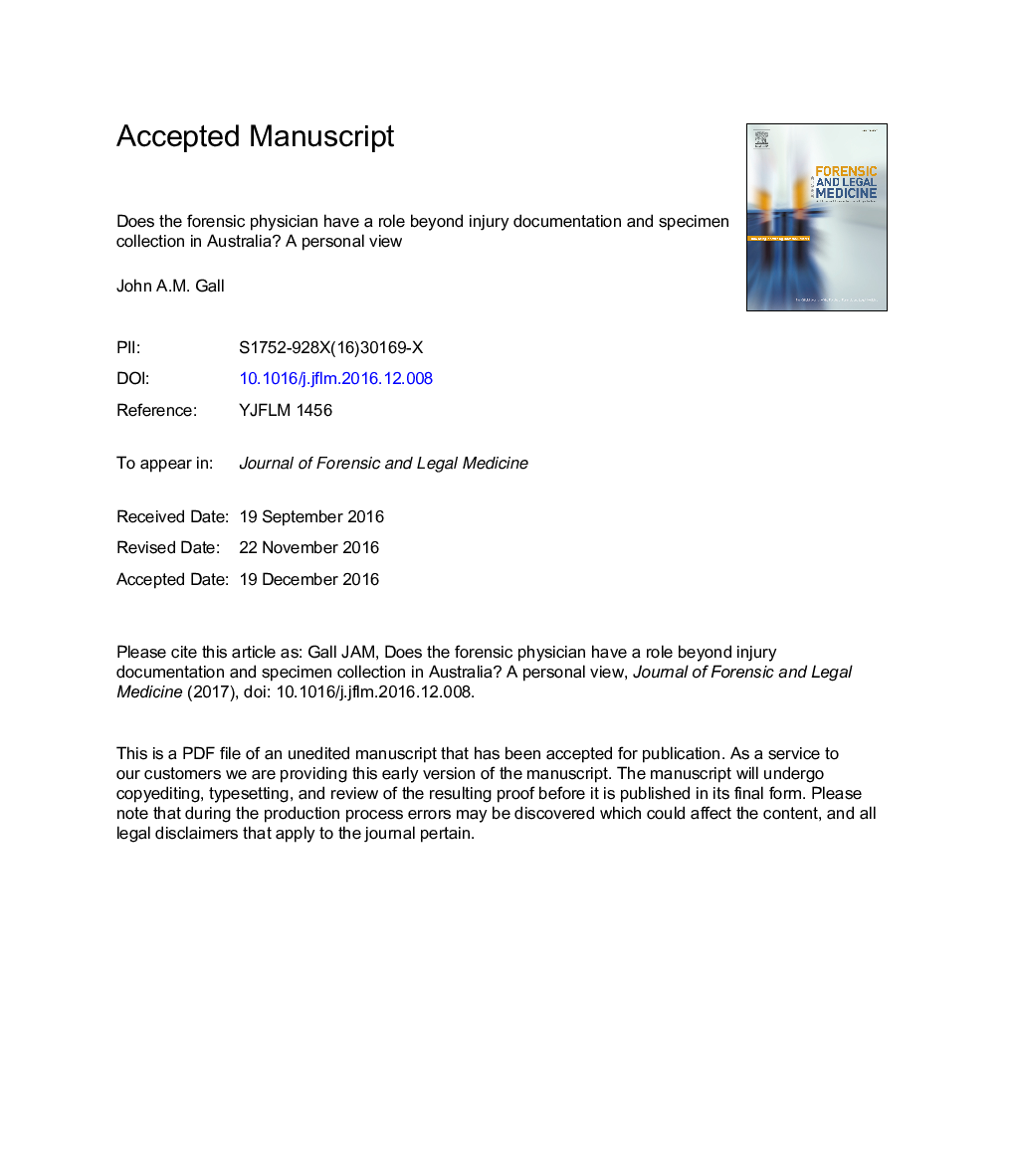| Article ID | Journal | Published Year | Pages | File Type |
|---|---|---|---|---|
| 4760768 | Journal of Forensic and Legal Medicine | 2017 | 18 Pages |
Abstract
Clinical forensic medicine (CFM), as a single discipline, encompasses a number of areas of medico-legal practice including injury interpretation, management of sexual and physical assault cases (both adult and child; alleged victim and offender), mental health issues, traffic medicine, custodial medicine and toxicology. The cases are usually alive but in some jurisdictions the forensic practitioner also engages in death investigation with some undertaking autopsies. During the last 20-30 years, the discipline has fragmented with areas being hived off to other medical specialist disciplines and, importantly, to nurses. Any user of forensic services wants the best value for money particularly when under financial pressure. To this end, governments have sought savings through privitisation of services and/or the utilisation of less qualified personnel to undertake some or all of the tasks. This places CFM at a crossroads. To ensure survival, the discipline needs to reconsider its direction and performance, convince stakeholders of its relevance and importance, and lift its profile within the legal, academic and medical world. It will need to think outside the square, place greater emphasis on the 'clinical' and relinquish those activities that are better undertaken by less expensive and qualified personnel. The establishment of meaningful research and academic centres are essential. The loss of and/or failure to grow CFM will result in the loss of a skills base and the subsequent potential for the miscarriages of justice.
Related Topics
Life Sciences
Biochemistry, Genetics and Molecular Biology
Genetics
Authors
John A.M. Gall,
